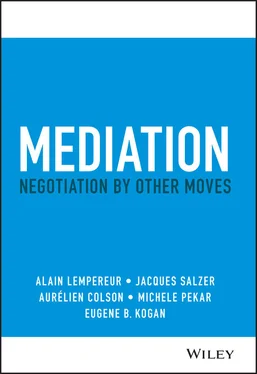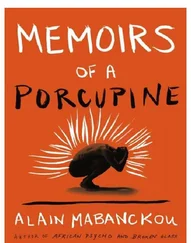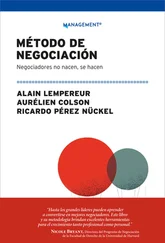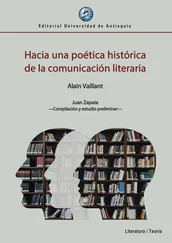A college of mediators in New Caledonia
By 1988, and for several years prior, the French overseas territory of New Caledonia had been shaken by a series of clashes between supporters and opponents of independence. On April 22, the crisis culminated in the hostage taking of 27 police officers ( gendarmes ), detained on the island of Ouvea by independence activists. On May 5, a special commando unit of the National Gendarmerie engaged in an assault, releasing the hostages, but at the cost of 21 casualties. New Caledonia was on the brink of civil war. Prime Minister Michel Rocard dispatched a team of mediators to the area, coordinated by Christian Blanc. This team was composed of different mediators with complementary profiles (legal, administrative, spiritual leaders). They engaged and listened carefully to representatives from the different ethnic groups of New Caledonia. They succeeded in bringing the parties together and convening a negotiation which successfully ended with the Matignon Agreement on 26 June 1988.
Whatever the outcome, these official yet ad hoc mediators halt their mission once the problem has been resolved, or the stalemate has been confirmed.
Here, mediators are part of a mediation organization, which guarantees continuity. The mediators are formally employed by an organization (public body, company, etc.) and its external partners (consumer, user, customer, supplier, etc.) seeking to rectify a complaint that they find justified in law or in equity. In addition, large organizations have appointed mediators in charge of managing internal disputes among their stakeholders.
We owe the invention of institutional mediators to the Swedes, who created the ombudsman in 1809: a man in charge of a mission ( ombuds ), in this case the search for justice between the State and its citizens. A similar function has developed in neighboring Nordic countries, such as Finland in 1953, then in the United Kingdom and the United States in the 1960s. In 1973, France created the Mediator of the Republic to facilitate disputes between the government and its citizens. Many universities have created ombuds services.
Why appoint institutional mediators? The intention is to establish a human link between an individual and an organization, which at first glance looks like a bureaucratic machine. Even in organizations that strive to respect rights, an individual might feel lost or powerless, when faced with decisions that seem unfair or seem to impinge on their rights. In these cases, mediators can help to exercise, between a person and an organization, an ex post review of the quality of the decisions. Even if the organization appoints and remunerates the mediators, it needs to guarantee their independence of judgments and actions, for them to seek fair solutions between the organization and the applicant. In fact, taking into account the current craze for mediation, such services will only serve the long‐term image of an organization, if they also benefit from real resources and skills (Lempereur 1998b). Many leaders of organizations sincerely appreciate that “their” institutional mediators exercise critical functions and contribute to conflict reduction and to stakeholders' improved satisfaction.
Whichever organization hosts them, institutional mediators generally employ a method characterized by the following:
Written mediation, carried out on the basis of a complaint reported by one stakeholder (for example, the employee or the user on one side, the department concerned on the other).
A compliance review of contractual rules or established law.
A fairness test that mediators perform.
An opinion of the mediator (or of the mediation commission), which makes suggestions that the parties remain free to follow or not. This advice sometimes paves the way for a new negotiation.
An additional advantage of institutional mediators lies in their ability to recommend, within their organization, the implementation of the solution advocated at the end of the mediation they just conducted. There is thus a coherence between the problem posed, the proposed solution, and the people or organizations involved in the implementation of this solution.
Institutional mediation also aims to propose generalizable solutions, fully integrating the possibility that they constitute precedents that can be referred to later. Because of their role, institutional mediators inevitably reveal patterns in the interpretation of, and solutions to, some recurrent conflicts; as a result, they create some predictability of outcome. In addition, they derive recommendations from their activity, which they communicate where appropriate within their organization, or even make public in annual reports. These recommendations often help to revamp organizational structures and procedures.
Finally, in general, it is the institutional mediator (and not the parties) who proposes solutions in the form of opinions or recommendations. Institutional mediators thus fit into the “mediator as adviser” model that we will develop next. As evidenced, this typology of mediators – informal, ad hoc, institutional – echoes a diversity of mediation practices.
The above categories illustrate a diversity of mediation models (Lempereur 1999a), with various methods , and translate into multiple practices .
Models, Methods, and Practices
What do we mean by these three expressions?
Models –By “models” we do not mean examples to follow, but rather broad types of mediation approaches, featuring the characteristics representative of most mediators (Lempereur, 1999a). We can distinguish, for example, mediators as advisers or as facilitators .
Mediators as advisers try and find solutions for the parties. Such mediators, also called evaluative, provide, after listening to the parties, suggestions which they find relevant, balanced, and fair. Parties remain free to follow or not to follow this advice, to modify or adjust it.
Mediators as facilitators help the parties find their own solutions. Such mediators, also called facilitative (Brown 2002), do not offer any solutions, but try to make solutions emerge from the dialogue between parties. They invite parties to explain their views and hopefully acknowledge each other. Like midwifes, they make them ready for, or facilitate, a joyful birth at the ripe time. They consider that parties always understand their problems better than a mediator so that they can deliver their own best possible solutions themselves.
At the crossroads of the two models are the evocative mediators, who are providers of ideas – but not givers of lessons. Based on their own personal experience, mediators add to the ideas of the parties, if the parties did not get them by themselves. This is done not as “advice” but as a “gift of ideas,” without prejudging whether the parties will perceive these solutions as suitable or not. In short, these mediators wonder aloud about the adequacy of this or that solution. Knowing that they are not a party to the conflict, they offer without advising, insisting, pressing, or pretending in any way to alone hold the keys to the just or fair solution.
Depending on whether they claim to be an adviser or a facilitator, mediators do not use the same resources. According to a classical typology (French and Raven 1959), mediators can leverage different power resources vis‐à‐vis the parties: they can demonstrate expertise that the parties trust; their status may grant them special legitimacy; the parties can value their relationship with them; they may have crucial information which they can make available to the parties; or they can reward or exert pressure on the parties.
Читать дальше












